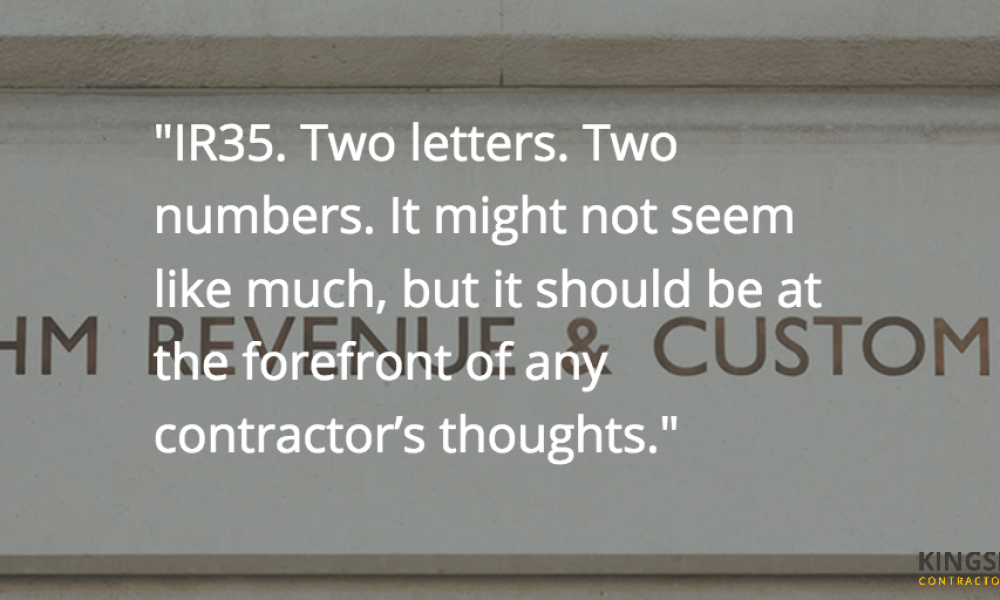IR35. Two letters. Two numbers. It might not seem like much, but it should be at the forefront of any contractor’s thoughts. Not understanding the implications of IR35 could be the difference between a trouble-free working existence and a huge, potentially business-ending, fine.
If you work in the public sector there’s a good chance you’ve already felt the sting of the recent reforms which have left independent workers at the likes of the NHS and BBC up in arms at their treatment.
Unfortunately, there’s a very good chance that the same reforms will roll out to the private sector in the near future, after an upcoming consultation due to be released this year. Given how prevalent the legislation is likely to become, it’s important that contractors make sure they know as much as possible.
What is IR35?
In the simplest of terms, the legislation is designed to clamp down on the use of Personal Service Companies by individuals who would ordinarily be classed as ’employees’ according to their work practices.
Any contractors who do not meet HMRC’s definition of ‘self-employment’ are likely to be classed as being ‘disguised employees’ and ‘Inside IR35’, resulting in increased tax and N.I. liabilities. If HMRC do not recognise a contractor as ‘self-employed’ from a taxation perspective there is a very good chance they will be taxed in the same way as any permanent employee would.
As a contractor or freelancer there are certain questions you can ask yourself that will help you work out whether you fall inside IR35 or not.
Generally speaking, you are inside IR35 (a ‘disguised employee’) if most of the following applies:
- You have to do the work yourself and can’t employ anyone else to do it on your behalf.
- You have your working hours dictated to you by someone else.
- Someone else can tell you what tasks you should be working on at any given time or where you should be working and how.
- You are paid monthly, weekly or hourly.
- You are eligible for overtime pay.
- You are eligible for a bonus.
You would usually be considered outside IR35 (a self-employed person) if most of the following applies:
- You can hire another person at your own expense to do the work for you.
- You risk your own money.
- You provide your own equipment – including the main equipment needed to carry out your work.
- You control how, when and where you carry out your work.
- You carry out the work for a fixed fee regardless of time spent.
- You work for several different clients.
- You have to make fixes and amends to your work (if unsatisfactory) at your own expense.
Complying with IR35 can be confusing at the best of times, but we’re here to help. Having the right insurance in place as a contractor is seen by HMRC as a positive indicator of self-employment and helps demonstrate that you are operating as a legitimate business, rather than a disguised employee – a huge plus point should you find yourself in the midst of an IR35 investigation.
That’s where we can help. Our Legal Expenses product offers a variety of legal cover, including against IR35 disputes. Want to know more? Give one of our IR35 experts a call today on 01242 808740.
